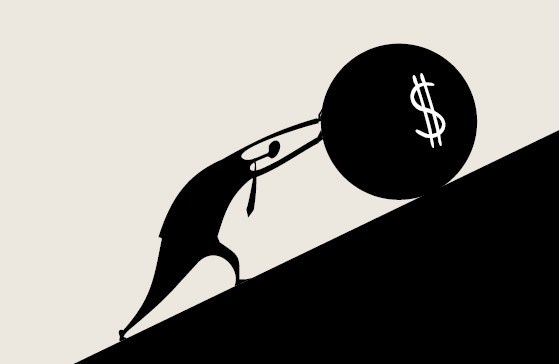 A number of funding and grantee schemes have now been established to help regional companies sell internationally. PAUL MELLY report
A number of funding and grantee schemes have now been established to help regional companies sell internationally. PAUL MELLY report
Powered by the resilience of the global oil market, Middle Eastern economies are already raising their sights towards the prospect of recovery, even while the outlook for most world regions remains uncertain.
But while the hydrocarbons sector will continue to provide the revenue base for many countries across the Gulf and North Africa, it is not labour-intensive and will never be a major generator of employment.
For that, they must look elsewhere. This is a point well understood by national leaders and economic planners right across the region. It explains the determined interest with which they have focused on the promotion of new export options outside the energy sector.
With populations rising fast and a need to create millions of new jobs each year, industrial and trading diversification is an absolute priority. Governments, development institutions and the private sector have responded to this challenge with the establishment of a number of funding and guarantee schemes to help regional businesses sell internationally.
Commercial banks naturally play a big trade financing role in MENA, but they are no longer standing alone in doing so. Alternative tools are now available.
MENA pioneers
Among the most well established is Egypt’s export credit scheme. Set up as the “National Programme for Guarantee” under a 1992 law, with five major banks and insurers taking stakes in the Export Credit Guarantee Company of Egypt (ECGE), this now has a $200m portfolio.
One of ECGE’s main tasks is to provide the support that enables exporters to tap into market opportunities in their own continent in instances where risk conditions are often regarded as difficult.
Over the past two years it has more than doubled credit cover for sales in Africa, through short and medium-term cover against risks such as buyer insolvency and civil disturbance.
Alaa Gouda, ECGE’s general manager, recently pointed out that the weakness of demand in Western markets was leading Egyptian companies to look for opportunities south of the Sahara, where populations are rising and economies have continued to grow.
African business now accounts for 25 per cent of ECGE’s portfolio.
Moreover, payment conditions were actually quite good, he explained. Although African buyers often looked for long credit periods, they had not defaulted; indeed, this is the only world trading region where ECGE has experienced no payment
failures at all during the global financial crisis.
To reinforce its access to technical expertise and international risk data, ECGE has joined the Coface Alliance of partners established by the French credit insurer Coface.
Saudi finance
Saudi Arabia also has a national initiative to provide financing for support for exporting firms, particularly those that sell into
newer or more troubled markets. While the Kingdom’s trading giants are world names in sectors such as petrochemicals, many of the downstream industrial businesses that have grown up over the past decade or more are much less well equipped to
navigate difficult international markets alone.
Moreover, as relative newcomers, they may find themselves forced to concentrate initially on regional or niche opportunities where Western or Asian competitors may be less well established.
This trade development vocation is reflected in the fact that the Saudi Exports Programme (SE P) falls under the aegis of the Saudi Fund for Development, the Kingdom’s international aid agency.
Launched in 2001, it is specifically mandated to promote exports other than crude oil, through finance and, since 2003, a guarantee service.
Since its creation, the programme has financed 106 transactions, worth SR 4.77bn ($1.27bn). In 2008 – the latest year for
which figures have been released – it financed 13 deals, worth a combined $239m, for the export of services, agricultural machinery, road safety goods, raw materials and urea fertiliser.
These were destined for a highly diverse range of markets both within the region and further afield. Among them were: Jordan,
Qatar, Sudan, Tunisia, the UAE , Pakistan, Turkey, Argentina, Bosnia and the Seychelles. In many cases, SEP sets up credit lines with banks in the buyer countries, to finance Saudi exports.
Lines of this type accounted for about a third of SE P’s activities up to the end of 2007, but much less in the following year. It remains to be seen whether this shift towards direct financing by the programme was a temporary consequence of the global credit
squeeze, and the inability or reluctance of banks in many countries to free up lending capacity, or whether this points to a lasting change in the pattern of SE P activity, towards more direct financing operations.
Analysis of the patterns of business supported by the programme over its first eight years, shows a strikingly strong geographical focus: out of the 106 deals that it has supported, 52 were in Africa and 51 in Asia – with the Middle East categorised under
these two regions – with only three in the rest of the world.
The industrial mix of product sectors supported by SEP financing understandably reflects the strengths of Saudi Arabia’s emerging export base: chemicals and plastic products account for 30 per cent of all business supported with financing or guarantees, and metal products account for a further 25 per cent. But there are pointers to diversification, with 20 per cent of all activity in support of capital projects.
Meanwhile, SE P’s guarantee service covered 48 deals between 2003 and 2008 and demand has come almost exclusively from companies selling into Middle Eastern markets. The programme has been diversifying the range of services it can offer by negotiating co-operating accords with banks in the region for the guarantee of financings, letter of credit confirmation and the exchange of credit information.
While Egypt and Saudi Arabia have been leading the way in the development of national export finance and credit guarantee schemes in the Middle East, the Arab Monetary Fund has developed a regional initiative, the Arab Trade Financing Programme, which aims to provide lines of credit to support trade, through national agencies, country by country.
Islamic funds
Sharia-compliant financing is also becoming increasingly important in support of trade in the Middle East. The Islamic financial sector has built up a large asset base, so it has the funds and the risk appetite to support exports.
Moreover, the financing of trade is also attractive as a potential growth area for Islamic banks because it fits very comfortably with their core philosophical principles, particularly the belief that finance should be linked to real assets and business risk.
The Jeddah-based Islamic Development Bank (IsDB), the region’s leading multilateral development agency, has established two major offshoot agencies to provide finance and risk protection in support of trade.
The Islamic Corporation for the Insurance of Investment and Export Credit (ICIEC) provides investment insurance and export
credit. For example, in April 2009 it issued a $75m insurance policy to Egypt’s El-Sewedy Cables, to support the export of power transmission lines to Ethiopia; this provides cover against both commercial and political risks for a even-year repayment period.
The other major IsDB initiative on the trade front is the International Islamic Trade Finance Corporation (ITFC), which brings
together the bank’s hitherto disparate trade finance schemes under one roof.
Two years ago the new operation was equipped with a $1bn fund to support its operations. And during 2008 alone it financed an impressive portfolio of 27 deals, totalling $1,836m, for a wide range of Arab countries and Iran.
Most of these were in the first half of the year – before the global crisis brought a dramatic slowdown in economic activity. business was split roughly 50:50 between the private and public sectors.
The majority of transactions were between mainly Middle Eastern Islamic countries, but in the first six months of 2008 ITFC did fund $300m of business with countries that do not belong to the IsDB. The corporation is also seeking to broaden the range of banks with which it works, adding institutions in Lebanon, Jordan and Nigeria to its range of partners in the first half of 2008 alone.
Trade financing support for Middle Eastern business also comes from the International Finance Corporation (IFC), the
private sector financing arm of the World Bank group. It provides credit to banks within the region on a wholesale basis, for on-lending to individual businesses. Trade finance has become one of IFC’s most important activities in the region.
 Cash And Trade Magazine For Cash and Trade professionals in the Middle East
Cash And Trade Magazine For Cash and Trade professionals in the Middle East





